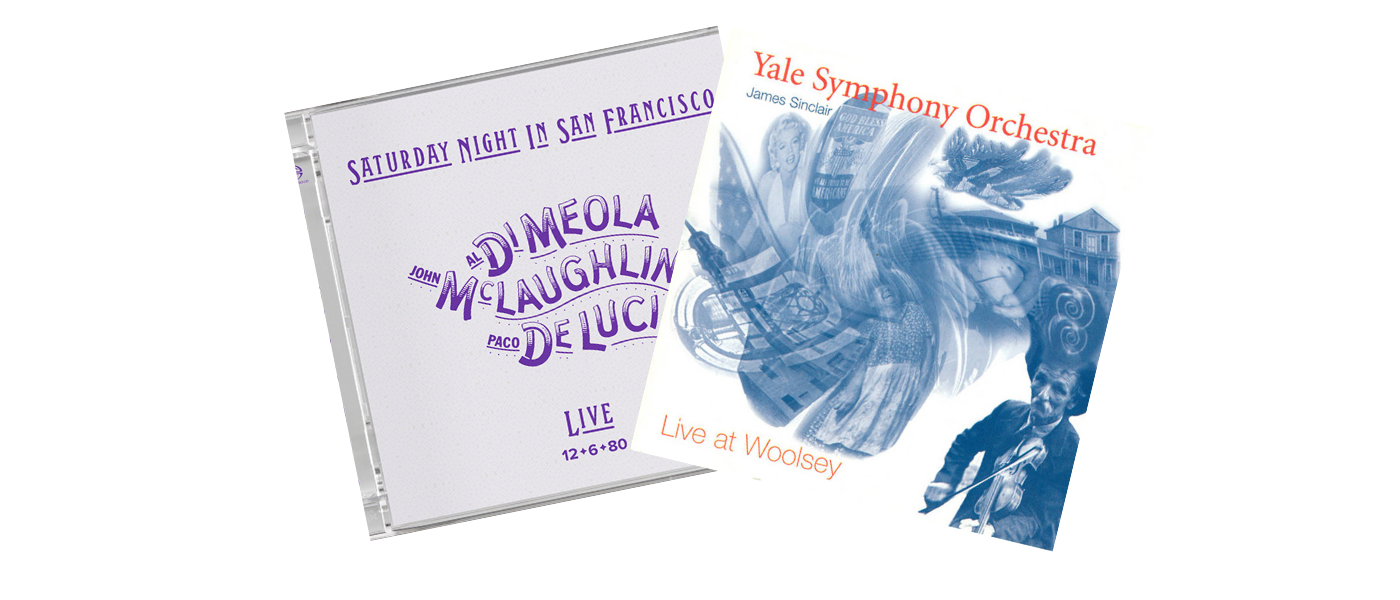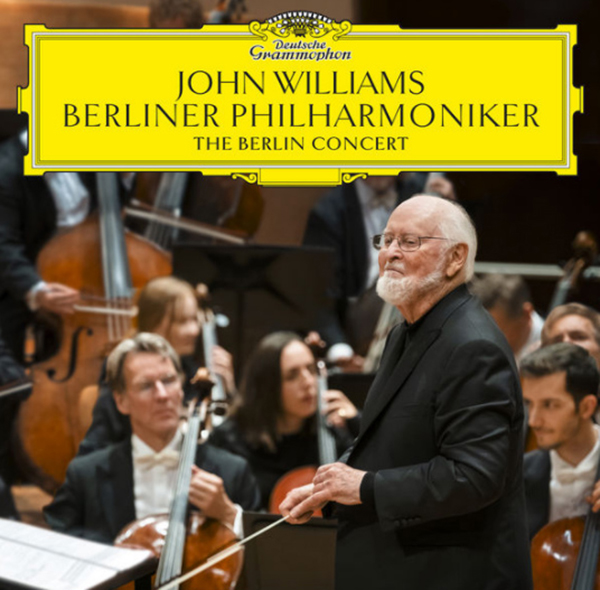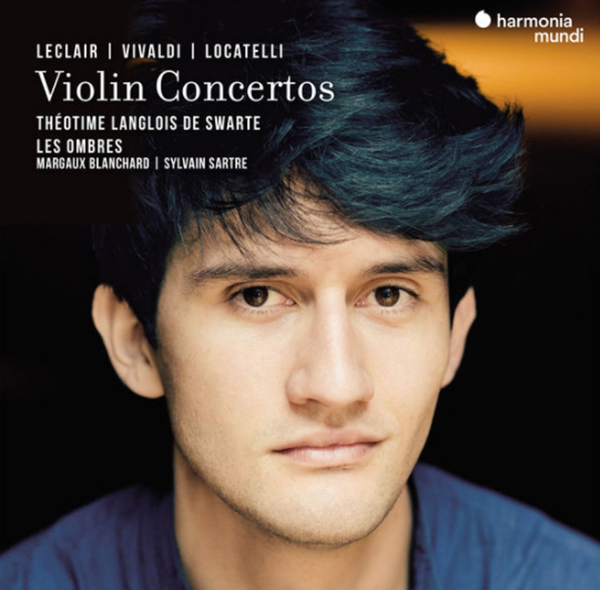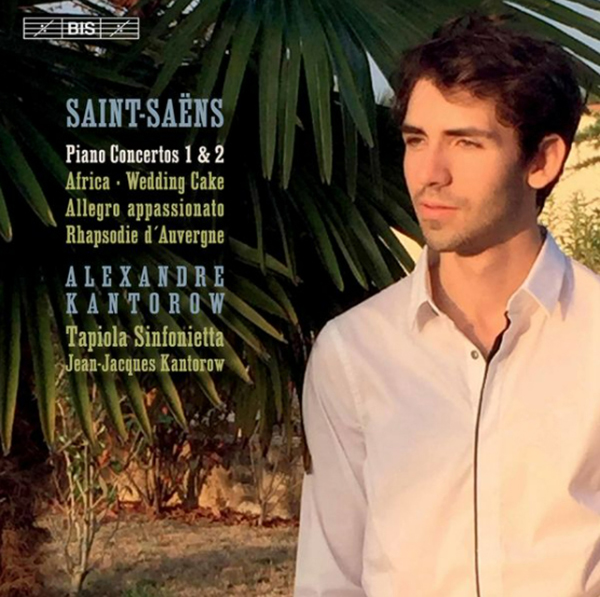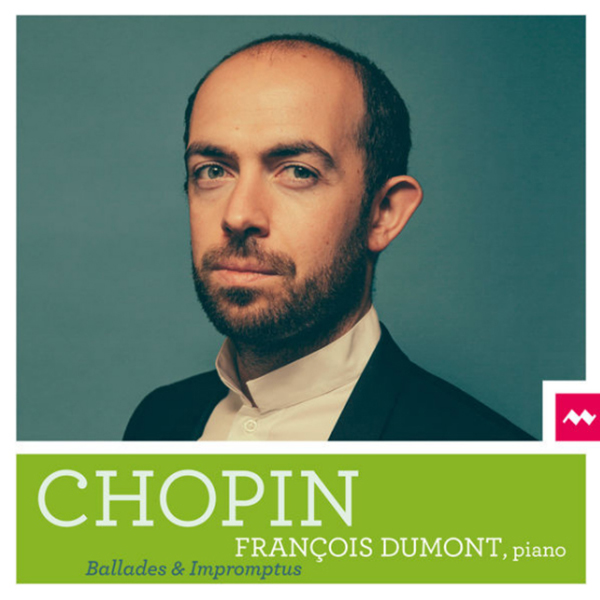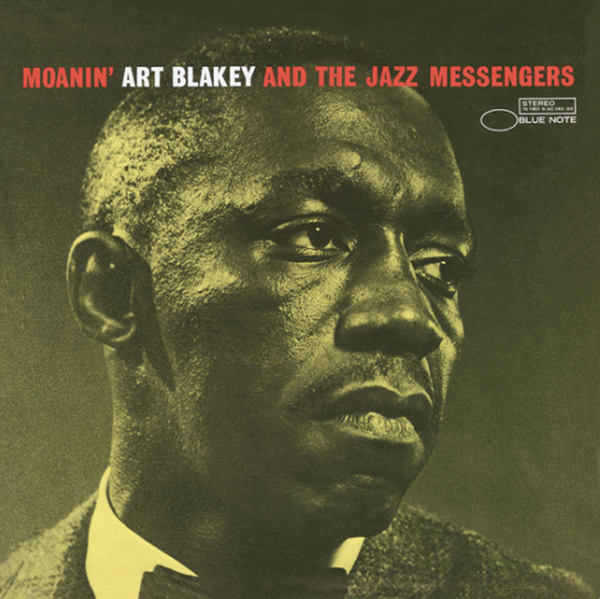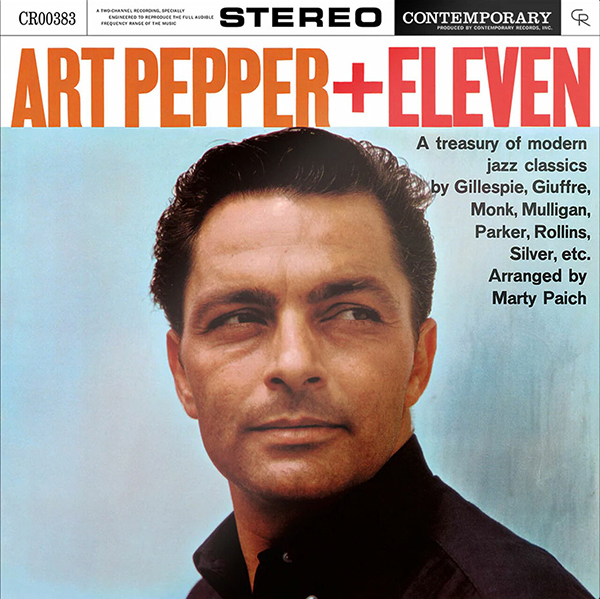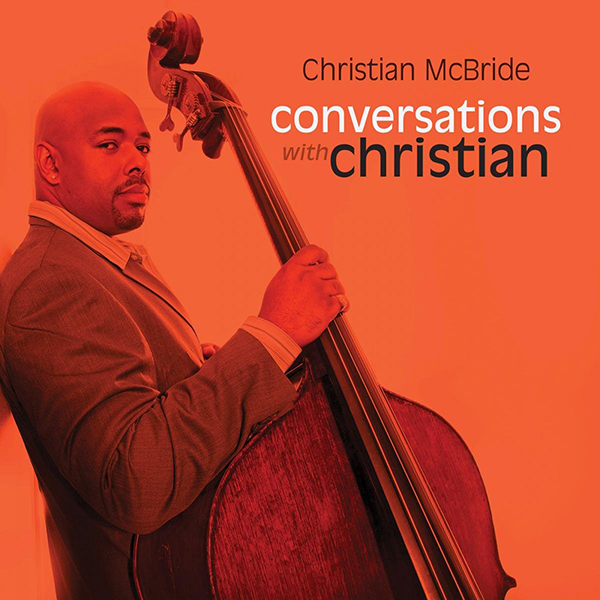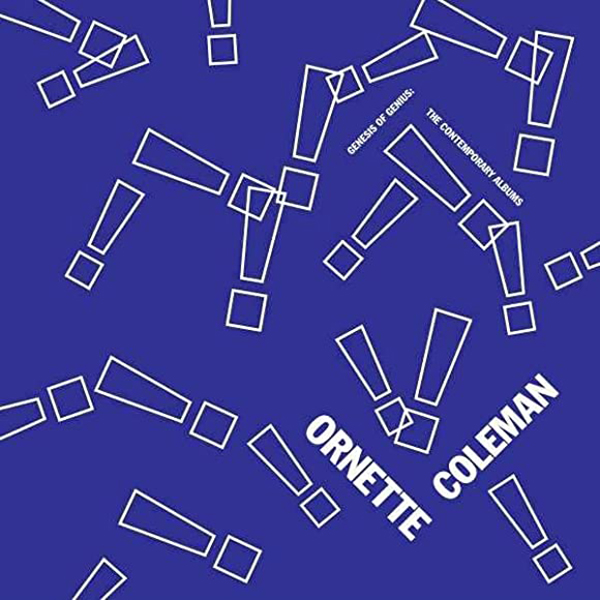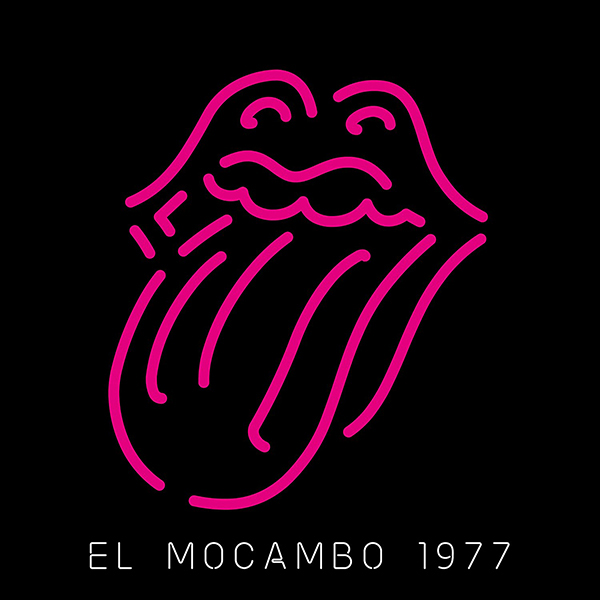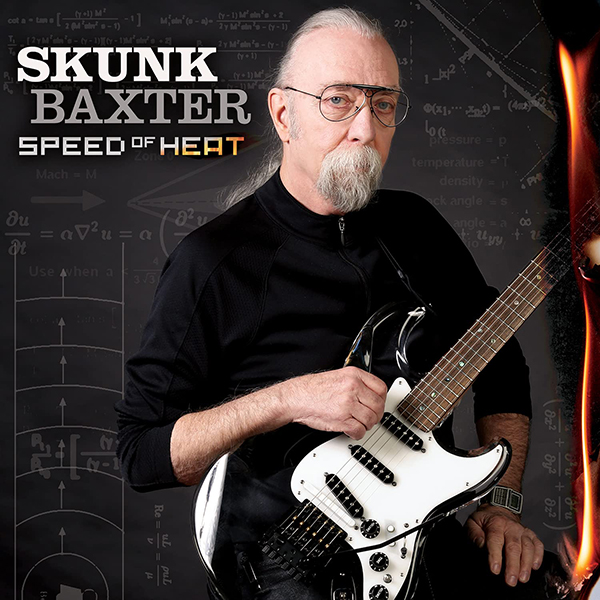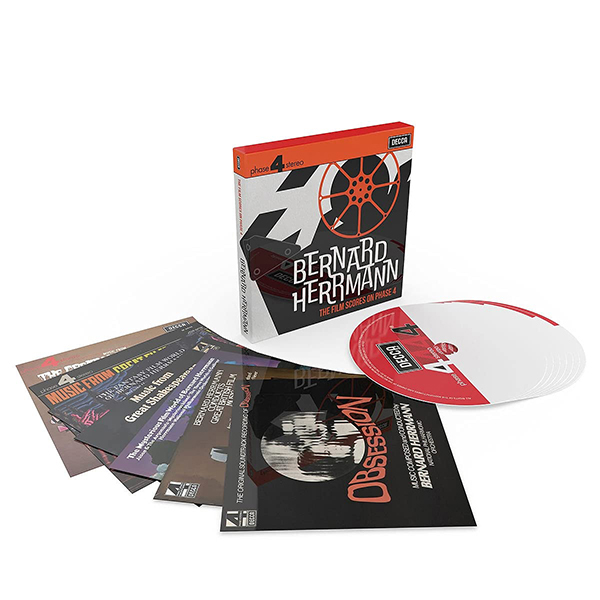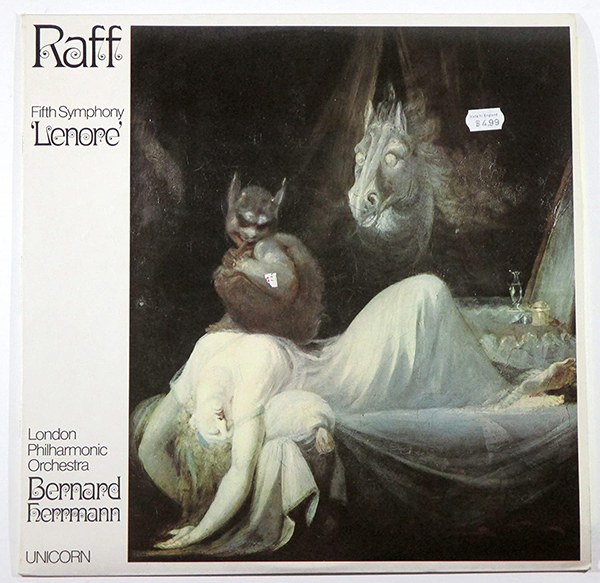John Williams: The Berlin Concert – Deutsche Grammophon (DG) – February 4, 2022
John Williams is one of the finest film score composers in the world. His compositions are immediately recognizable concerning the movies they were created for. Available in 24/192 PCM on Qobuz. Film scores for movies made these days tend to be computer-generated, and it is nice to be reminded of what they sounded like when real orchestras played them, and when the melodies are easily remembered when we hear them.
“It is heartening to see John Williams, the dean of film composers, recognized in his old age by invitations to lead the grand European orchestras, first the Vienna Philharmonic and then, here, the Berlin Philharmonic, in a concert recorded in October of 2021, just a few months in advance of Williams’ 90th birthday. Williams fans will probably want both albums, for the contents do not overlap much. This is possible because he has written such an abundance of great music, and any hearer of these albums cannot help but reflect on how deeply his music is woven into the contemporary cinematic consciousness. One will also notice how much Williams owes to the grand tradition of Austrian-American film music, growing out of Wagner and Strauss. The Berlin Philharmonic does not have to master the tricky acquisition of American vernacular idioms, for Williams rarely uses these. When he departs from his central language, as in the score to Close Encounters of the Third Kind, it is in a modernist direction. One center of his music is the march, which is present in many pieces that are not explicitly designated as marches, and it is here that The Berlin Concert takes Williams to a new level. Are there American brass sections that could add the same level of snap to the Olympic Fanfare and Theme (written for the 1984 Olympic Games) or the “Raiders March” (from Indiana Jones and the Raiders of the Lost Ark)? Possibly a few. Would they necessarily be available for a high-profile survey of Williams’ work like this one? Probably not. The album has been billed as a meeting between the greatest film composed in the world and the greatest orchestra in the world. Certainly, neither characterization is far off, and the combination results in a very special release indeed.
© James Manheim /TiVo
Secrets Sponsor
Vivaldi, Leclair & Locatelli: Violin Concertos – Théotime Langlois de Swarte – harmonia mundi – February 18, 2022
I am not a fan of violin concertos, so when I do like an album of violin concertos, I want to talk about it. The violinist here is obviously a very young man. But, he is incredibly talented, and the recording is extra good, at 24/96 streaming on Qobuz. You can soften the sound a bit if you like, using linear phase digital EQ. I am a huge fan of Vivaldi, so perhaps that is mostly why I like the album.
Magdalena Hoffmann – Nightscapes (for harp) – Deutsche Grammophon (DG) -February 11, 2022
Now for my sit in front of the fireplace with a cat on your lap music. This album of music from different composers is played on the harp by Magdalena Hoffman. Available in 24/96 resolution on Qobuz. Composers include Respighi, Chopin, Clara Schumann, Benjamin Britten, and others.
“The night has never ceased to inspire artists, whether in literature, painting, or music. And for good reason: is it not the place of intimacy, introspection, and – above all – of the imagination? When the mystery of the night is expressed in music, and in particular on the harp, it touches us all and evokes very concrete images in each of us. In her album Nightscapes, Magdalena Hoffmann has set herself the task of capturing the magic of the night: “My instrument is the ideal vehicle for this intimate, but also the magical and fantastic atmosphere. It’s not for nothing that the harp often corresponds to celestial or underworld moments in the orchestra.
The German harpist, born in 1990 in Basel, discovered her favorite instrument at an early age. Her career took a turn when, in 2016, she received two special prizes at the ARD International Competition. Two years later, she became the principal harp in the Bavarian Radio Symphony Orchestra. In 2021 she signed an exclusive contract with Deutsche Grammophon, and Nightscapes is her first project.
The album consists of original compositions for harp and arrangements of piano pieces. The former includes Benjamin Britten’s Suite for Harp, Op. 83, a key work in the 20th-century repertoire for the instrument. There is also the Danse des lutins by Henriette Renié (1875-1956), a French harpist for whom Fauré, Debussy and Ravel composed.
Magdalena Hoffmann also performs pieces by Chopin, Clara Schumann, John Field, Ottorino Respighi, and Marcel Tournier. The genre of Nocturnes, in particular, conveys the intimate and mystical atmosphere that made it one of the most typical character pieces of Romanticism. But the light, dancing sound of the harp is also perfectly suited to Chopin’s waltzes or Jean-Michel Damase’s Fantaisie. Hoffmann, for her part, sublimates the very special intimacy of the instrument’s sound. A magical stroll through the night.
© Lena Germann/Qobuz
Secrets Sponsor
Saint-Saëns –Piano Concertos 1 and 2 – Alexandre Kantorow – Tapiola Sinfonietta – Released by BIS – April 1, 2022
Charles-Camille Saint-Saëns (1835-1921) was a French composer, organist, conductor, and pianist of the Romantic Era (1830-1900). Perhaps his most famous work was Carnival of the Animals which was published in 1922, the year after his death. It was a style called Symphonic Poems.
But, he composed a lot of other music as well, some with unusual names, such as Africa and Wedding Cake, both of which are contained in this excellent album which is a good introduction to this wonderful composer.
The recording is on Qobuz at 24/96 sampling. The piano concertos are particularly marvelous, and Alexandre Kantorow renders them superbly on piano.
François Dumont (Piano) –Chopin: Ballades & Impromptus – Frédéric Chopin – Released by La Musica – April 1, 2022
Chopin’s (1810-1849) name rings a bell with every human being on the planet. His solo piano works are full of memorable melodies. They won’t keep you awake at night because they are very relaxing.
This album of Ballades and Impromptus are performed by pianist François Dumont and presented on Qobuz streaming at 24/88.2 sampling. I am finding that more and more albums are being released in high res PCM (rather than the outdated 16/44.1) than there used to be. This is good because there are fewer quantization errors and the low-pass frequency is farther above the limits of hearing. Whether we can hear the improvements is debatable, but I am pleased regardless.
Art Blakey and the Jazz Messengers – Moanin’ – Released by CM Blue Note (A92) – October 30, 1958
Art Blakey and the Jazz Messengers were a classic jazz group in the classic jazz golden days (the 1950s). This particular album was recorded in 1958 (and remastered for re-release). The digital version here, from Qobuz streaming, is 24/192. It features Lee Morgan on trumpet, Benny Golson on tenor saxophone, Bobby Timmons on piano, Jymie Merritt on bass, and of course, the titular Art Blakey on drums.
The music illustrates that, like the golden days of Hollywood movies in the 1940s, the sound of jazz has changed tremendously over the decades. In the old days, there was a lot more melody to the songs than there is now. These days, musicians play more notes, but it is sometimes hard to detect the melody itself. Not necessarily better or worse, just different.
The sound is excellent, not just for an album recorded more than half a century ago, but in general. Stereo had only been around for a few years, and so, recordings had instruments in just the left or right channel.
Art Pepper, Art Pepper + Eleven – Modern Jazz Classics, Contemporary Records/Craft Recordings, 1959/2021.
As part of a series celebrating 70 years of the Contemporary Records label, Craft Recordings has given us the re-issued gem of Art Pepper+Eleven: Modern Jazz Classics on 180gm LP. This 1959 recording features Pepper working with an eleven-piece band, interpreting jazz standards with arrangements by Marty Paich.
As to the album’s content, it’s comprised of 12 tracks of notable jazz compositions, some more well known than others, from the likes of Dizzy Gillespie, Charlie Parker, Thelonious Monk, Sonny Rollins, Horace Silver, you get the picture. The potential pitfalls with these sorts of musical projects that combine an exceptional talent like Pepper with a big band and a powerhouse arranger to interpret someone else’s music are many, and yet none of them seem to materialize here. As a whole, the band never overwhelms Pepper and the two entities seem to play off each other fluidly and lyrically. A perfect example is “Bernie’s Tune” which sounds like the tightest and most playful jam session committed to record. “Walkin’ Shoes” is a super-tasteful big band number that casually swings. Pepper’s solos are warm and clear, perfectly centered in the soundstage. But he also has no problem deferring to a dynamite trumpet solo midway through the piece. Art Pepper switches between alto and tenor sax along with clarinet on this album, his smooth clarinet solo featuring prominently in Dizzy Gillespie’s and Charlie Parker’s “Anthropology.” The classic “Round Midnight” is handled with an emotional sincerity and a deft touch that puts to shame several overly contrived takes of this song that I’ve heard over the years. This whole album demands to be savored at a slightly above-average volume for prime immersion and elevated enjoyment. It swings, grooves, and soothes in equal parts and just makes exceptional listening.
On the technical side, this release is billed as an “all-analog mastering from the original master tapes.” Mastering was done under the watchful eye of Bernie Grundman and the LP was pressed on 180gm vinyl at QRP pressing. The album itself has an extremely quiet noise floor, with no unwelcome clicks or pops appearing on either side. The music itself has a nicely sized soundstage with a great sense of presence. It definitely is a standout re-issue for a standout album. If you are an Art Pepper fan or just dig some tasty big band sounds, this album is worth picking up.
Christian McBride, Conversations with Christian, Mack Ave Music Group, 2 LP, 2022.
My first encounter with the bass-playing prowess of Christian McBride was as a regular session and touring bassist with Diana Krall a few years ago. Since then, I’ve slowly been absorbing more and more of his solo recording work, and “Conversations with Christian” (originally released in 2011) is a fun, diverse, and offbeat listen that my ears took to immediately. It is basically a series of “duets” featuring McBride and a variety of other artists, most tracks are instrumentals and a few are with vocals. The supporting artists include Sting, Dee Dee Bridgewater, the late George Duke, and Chick Corea, Russell Malone, Eddie Palmieri, to name a few. The content varies from jazz, blues, African, funk, Latin and classical. As a whole, the music is great fun to listen to and demonstrates both McBride’s command and flexibility with the bass through all these different genres. It’s hard for me to pick a favorite from the tracks on this 2 LP set. “Spiritual” with Billy Taylor, “McDukey Blues” with George Duke, “Guajeo y Tumbao” with Eddie Palmieri, “Fat Bach and Greens” with Regina Carter, and “Sister Rosa” with Russell Malone are standouts for me. The final track “Chitlins and Gefiltefish” featuring actress Gina Gershon playing a Jew’s Harp is played mostly for laughs with great comedic banter between the two, it’s still a hoot to listen to and Gershon displays some serious chops on this weird little instrument that I remember my uncle playing when I was a kid.
This newly-released 2LP set is pressed on translucent orange vinyl and just sounds wonderfully recorded. The vinyl mastering sounds excellent with all the players presented clearly with a great sense of spaciousness and there’s a great punch and warmth to the sound of McBride’s bass, whether it’s being plucked or bowed. The pressing on both discs is very clean without a hint of pops or surface noise. For me, this set is a winner on all counts! Pick it up if you come across it at your local shop.
Ron Jackson, Standards and My Songs, Roni Music, LP, 2022.
Switching from bass to 7-String guitar, I was unfamiliar with Ron Jackson and his music. I checked out his latest album “Standards and My Songs” on the recommendation of a friend, and I am very glad that I did. This has turned out to be one of those albums that I just enjoy having on in the background while I draw, as it gets me into the creative groove both physically and mentally. Not a ton of music can do that for me without being somewhat distracting in its own right. But the fluidity of Jackson’s playing along with the melodic structure going on in the selected tracks here just makes it easy for me to slip into that prime creative headspace. Don’t be fooled into thinking this is elevator music though. Sitting down and just listening to this album straight reveals a couple of important points. This is a wickedly talented ensemble (mostly trio) performing on this album and the music is flawlessly recorded. Ron’s guitar sounds phenomenal, clean, and dynamic with obvious sensitivity and taste in the playing. Ben Wolfe on bass and Willie Jones III on drums provide excellent accompaniment and the back and forth between them all on tracks like “Will You Still be Mine” really delivers the musical goods. Two of my other favorite tracks on this album are “For Pat” (a tribute to the late Pat Martino) and Jackson’s rendition of “The Secret Garden (Sweet Seduction Suite).”
The LP pressing itself is nicely done with a minimum of surface noise and no extraneous pops or clicks. Another keeper that should be sought out by fans of Jazz guitar.
Ornette Coleman, Genesis of Genius-The Contemporary Albums, Contemporary Records/Craft Records, 2 LP, 1958-59/2021.
This is a nicely put together 2LP box set that is also part of Craft Recordings’ special series commemorating the 70th Anniversary of Contemporary Records. It contains new analog remasters of two Ornette Coleman classics “Something Else” and “Tomorrow is the Question.” Both LPs are pressed on 180 gm vinyl, produced at RTI pressing. The analog remastering from the original tape to lacquer has been supervised by Bernie Grundman who apparently got his start at Contemporary Records working under the original engineer for these two albums, Roy DuNann. An informative and well-written 32-page booklet completes this deluxe box set. Ornette Coleman has a reputation for being one of the first in a new generation of more avant-garde jazz players, even derided by some at the time these albums came out, he eventually received the recognition he earned and deserved.
Not being much of a Jazz historian myself, I tend to gravitate to music with more of a melody to it than some of the later free-form stuff. That being said, to my untrained sensibilities, these two albums maintain plenty of melodic structure and groove in all the tracks, with Coleman and his sidemen creatively painting inside and outside the lines. It makes for something different than the norm of the day, but still instantly appealing to listen to. Yes, I’m somewhat musically Monday Morning Quarterbacking here in 2022, because I’m sure back in 1958 and 59 plenty of jazz fans were more likely saying, WTF is this?! What it was (is) is the growth, evolution, and exploration of new musical possibilities in Jazz. Very much in line with the album titles.
Technically, these are as flawless a vinyl reissue as I have ever heard. Completely black backgrounds for the music to leap off of. No clicks, pops or surface noise to speak of. Instruments are mixed very much hard-left and hard-right but that’s how it was done then. Doesn’t matter in the slightest though. These are both fantastic sounding remasters and pressings of phenomenal albums. Frank Zappa once quipped “Jazz is not dead, it just smells funny.” That would happen many years later, but right now listening to this set, very little else sounds or smells sweeter.
The Rolling Stones, Live at the El Mocambo 1977, Polydor Records, 2022, 24/96 FLAC via Qobuz.
I must have seen about a dozen concerts live at the El Mocambo, a (formerly) seedy little nightclub institution in downtown Toronto. Cramped, and sweaty but with great acoustics are what I remember most about the place. This particular concert occurred in May of 1977, over 2 nights, which would have made me 8 years old at the time and well before my concert-going years ever began (I did happen to see ex-Rolling Stone Mick Taylor play a solo gig at the venue many years later). They were actually two “secret” shows that were originally billed for a non-existent act called “The Cockroaches.”
Having not played a live set (normally in a stadium at this point) for a good while, these two shows were a bit of a re-calibration and re-boot for the band proper. I stumbled upon this release while looking at the Qobuz home page one morning and boy it’s a dandy. The sound quality of this recording is outstanding for a live show. A vivid, immediate, and powerful account of a band still very much with something to prove in front of just a 300-person crowd. I always thought the Stones were at their best doing old-school blues and “Worried Life Blues” completely confirms that sentiment here. I could hear every little breath Mick Jagger took before belting out the lyrics of “Little Red Rooster” into that microphone. Keith Richard’s and Ronnie Wood’s double slide guitar action on this track came through with exacting detail. Charlie Watts’s kick drum was punchy and solid and Bill Wyman’s thick, loping bass lines were easily felt as well as heard. It’s all very up close and personal, slithering, raunchy, distorted, and fun. You don’t need a decent stereo set to really enjoy this music, but if you’ve got one, it’s transformative!
Before now, only 4 tracks of this material appeared on an official Stones album, Love You Live. Various iterations of this show have been available on bootleg releases so, after all these years, I am very happy this entire performance finally has seen the official light of day and given a proper mix and mastering job. This album brought back a ton of memories for me. Kind of like The Rolling Stones themselves who have become much bigger and slicker over the years, Toronto (my hometown) has done much the same. I despair sometimes at the thought of it. Everything changes whether you like it or not and you have to live with that, I suppose. Live at the El Mocambo reminds me of a city and a band that was a good bit rawer, unpretentious, and more fun to be around. This one is a must if you are a Stones fan.
Jeff “Skunk” Baxter , Speed Of Heat, Renew Records/BMG, CD, 2022.
I peripherally became aware of guitarist Jeff “Skunk” Baxter long ago, from an ad in the pages of some audio magazine. I have long since forgotten what the ad was for (audio recording tape?) but “Skunk” was pictured seated by a mixing console and he had a Stratocaster-style guitar with a transparent resin body (used for increased sustain) slung around him. Visually, he made quite the impression with the high-tech clear guitar, the big aviator glasses, the military style beret, and the trademark “stache.” I would, years later, learn that Baxter was a founding member of Steely Dan (one of my all time favorite bands) a significant part of the Doobie Brothers for a while, a well-respected session guitar player, and oddly enough a national security and missile defense consultant. A diverse set of credentials to be sure.
Speed of Heat marks Baxter’s first official album release as a solo artist. Produced along with collaborator CJ Vanston, its fair to say that the twelve tracks on it definitely show a variety of musical styles and execution. The opening track “Ladies from Hell” has a bit of a Celtic sounding vibe to it mated to a powerhouse level of drive. Baxter provides some great soaring guitar leads along with a variety of tasteful fills including a great sounding pass on what I think is a resonator guitar. Having done much of the solo guitar work on Steely Dan’s song “My Old School” Jeff Baxter includes a bit of an up-tempo “rocked-up” version of it on this album, and it sounds really good. Much more of a party than the original, and of course chock full of great guitar work. I especially love the “California, tumbles into the sea” line done in a Beach Boys/ Surfer music vocal harmony. “Juliette” and “Giselle” are both beautiful sounding moody instrumentals that effectively carry you to another place. “I Can Do Without” features Johnny Lang with great soulful, funky vocals and some tasty guitar fireworks that he trades back and forth with Mr. Skunk. Another Steely Dan classic in the form of “Do it Again” shows up here as an instrumental that bears some Larry Carlton-esq stylings to it, at least to my ears. It’s a very unconventional take on the song but a very enjoyable one too. Michael McDonald contributes his signature vocals to “My Place In the Sun,” another moody, introspective piece where McDonald’s voice melds exceptionally well with Baxter’s weaving guitar threads. Another standout song for me is a decidedly country take on “The Rose.” It showcases Baxter’s skill on pedal steel guitar and it’s a lovely and moving rendition of the song Bette Midler made famous in the movie of the same name.
The music itself is very well recorded and sounds fantastic on a great stereo system. If you are a fan of guitar and maybe something a little musically different, speed of Heat is definitely worth your time.
Bernard Herrmann, The Film Scores On Phase 4, Universal Music, 7-CD Box Set.
From 1968 to 1975 Bernard Herrmann recorded for Decca. He did the classical repertoire as well as film score suites of his music and mostly British composers. This boxed set reissues only albums of film music thus at least five albums are missing from the work Herrmann did for Decca. His 1970 Holst Planets sounds like a film score in his interpretation. Lots of luck finding the CD reissue which was done by Universal Music Australia for the Decca Eloquence label. The 1970 recording on LP is an easy find. This is not a recording people would put on the top of the list of best performances such as the Mehta recording with the LAPO or one of the Boult LPO.
His Ives 2nd Symphony, also on Decca, on the other hand, is considered definitive. Herrmann knew Ives and gave the first British performance. More LPs of that on eBay than the CD although that was released in the US. It’s on my top 100 must-have recordings.
Herrmann recorded almost all of his concert music in 1967-68, 1974, and 1976 for Unicorn. Most of those were paid for by Herrmann himself. CDs followed in the early 90s and some were released again by Unicorn a few years ago. I discussed the CD of his Symphony in the first What We Are Listening To installment. You had better hurry only 4 of the series are still for sale although some discontinued ones are on Amazon or eBay at OK prices used.
His opera Wuthering Heights is $60 on Amazon at the moment (3 CDs) but it has been at $300 before the Unicorn reissues. The opera needs large cuts, it runs 3 hours 30 minutes but he refused to do it when he was alive. As his biographer pointed out it made no sense. His film scores were sliced and diced to fit the edited film. Whole chunks of music could be on the floor when a part of the action was removed.
Wuthering Heights has been performed since his death. Stokowski asked for a concert suite and he said no but an hour length one for soprano and baritone was given on May 13 by the Singapore Symphony and Chandos is to record it later says the program notes. Looking at the movements it looks like much of the orchestral bridges may be gone from this but it shows the desire to bring this 70-year-old work into the repertoire, what Herrmann called his greatest work is still burning with the current generation of musicians.
In 1970 he did the definitive Joachim Raff Symphony #5 for Unicorn. Nobody heard of Raff when this recording appeared. Now almost all Raff’s orchestral music is recorded but this recording may be all the Raff you need. I saw one Unicorn CD on eBay for $20 and they have a ton of the LPs.
The other Decca recordings of Herrmann doing standard repertoire are considered less important these days. I do not think they made it to CD at all but without those recordings in the boxed set, it is impossible to know how they would be viewed today. No question he would be angry that these recordings were missing. Herrmann most wanted to be a well-known conductor and had some success. His uncontrolled temper prevented him from becoming a music director of an orchestra.
If you are into his film scores you’ll want the concert suites called Welles Raises Kane and The Devil and Daniel Webster on Unicorn in 1967. This was considered a demo quality recording of a natural concert,`, especially with the Ampex Reel tape with Dolby B. I am not sure the Unicorn CDs match it. I only have an air check I did on my reel-to-reel of the original Ampex tape. These are true pieces for the concert hall performed in the 1940s by Beecham, Ormandy, and Stokowski. This must have been the recording that interested Decca which started paying him to record in 1968.
For Decca, he did original concert suites of the films like the two works on Unicorn. He said that full film score recordings were not good for listening with so many cues being very sort or of less interest. This follows a long tradition of composers making concert suites of ballet music or incidental music for plays. It is thus strange that Herrmann was back at Unicorn in 1975 to record the complete Psycho. He had done his concert suite on the first Decca in 1968. You’ll want to get that Unicorn release now since it is still in print, but who knows how long that will be true. Most Herrmann Unicorn recordings did not get reissued and are long out of print.
OK, why are you getting the complete list of Bernard Herrmann recordings, most of which are close to, if not fully out of print, and as far as I know none are available to stream. It is because seven of the Decca recordings of his and others’ film music are back in new remastering to celebrate the 110th anniversary of his birth. Some may recall on his 100th anniversary the Classic Movie Channel played every one of the films he scored. This is not the only 110th anniversary release. I have an original DVD on Herrmann produced by musicologist Joseph Horowitz, listed on top. It’s part of a large series of DVDs on key composers of American classical (not film) music. I do not have that one in my hands yet.
Four of these are high-resolution downloads available on Presto Music in the UK. All of the reissues are on the boxed Decca 7CD set. It’s a UK release but Amazon has it. Make sure you order from Amazon direct to get free shipping. Four of the CDs are Herrmann’s concert suites, two are of other composers’ film music, mostly British, but also the first western recording of the suite the Shostakovich’s Hamlet which has grown legs and is at the edge of works performed by him. Also the Prelude of Walton’s Richard III and a small suite from the Rozsa Julius Caesar. The 2nd CD is of British film by classical composers who are mostly footnotes but Herrmann knew and admired their work.
The last CD is the complete score to Obsession with only Taxi Driver to follow. Both are from the last year of his life. Obsession was released on Unicorn. I do not know why Decca has issued it in this box set. This might have made a good concert suite but 40 minutes of it is more than most people will want. I would have rather had his take on Holst’s Planets than this.
This brings us to the four famous Decca recordings of the Herrmann concert suites. Hermann was working on more suites but his death prevented them from making it to tape. These are in the Decca Phase 4 recording technique. Close miking of all the instruments with 24 channels being put all together on the mixing board. On these remasters you can hear the volume sliders moving in and out at times. For classical music, the technique was a bomb that exploded not just at Decca but also at CBS. For Herrmann’s film music it worked. The LPs became audiophile favorites making it to Mobile Fidelity remasters. CDs appeared then reappeared. Between the LPs and CDs, I must have four copies not counting this new one.
The Great Movie Thrillers, was the first CD and is all Hitchcock. He gives the suite for The Trouble with Harry the title a Portrait of Hitch. It’s the only one of the suites on the 4 CDs that is not simply the film title. Other suites on CD are of more famous Hitchcock films. See here for a complete list of all the works on the seven CDs. The 2nd CD is Great Film Classics, these are works from the early 40s when he was scoring his first film. Jane Eyre is in a single movement lasting 13 minutes; the longest single movement on the 4 CDs although some multi-movement suites come in longer. Much audiophile fun including the too close-miked bass clarinet. It’s one of the tracks I used to take to CES to dust off the demo speakers.
CD 2 also includes 4 movements of Citizen Kane that are not on the Gerhardt RCA recording (Herrmann attended that recording). On the Decca recording, it is an incomplete version of the concert work Wells Raises Kane, which appeared on the earlier Unicorn, although it’s only a 2-minute movement that is missing. Only two of the five sections of the Devil and Daniel Webster are here from the Unicorn. The 1970 remake of Wells Raises Kane is significantly slower than the 1967 Unicorn.
Herrmann’s tempos become progressively slower until his death from heart disease in 1975. Where a musician sets tempo is a mystery but some say the clock is the heart and conductors with heart issues in later life may show slowing of tempo but an equal number of conductors speed up. Slow tempos are characteristic of the whole Decca series compared to earlier Herrmann recordings in both the concert works and film scores. The 1970 recording of the Holst Planets comes in at close to an hour which is the slowest performance I know of about 8 – 10 minutes slower than typical although it somehow works as an alternative view.
The 3rd CD is called Fantasy Film World which contains films from the early 60s. For The Day the Earth Stood Still he brings in two Theremins and an electric violin. Journey to the Center of the Earth has five organs. The Seventh Voyage of Sinbad and Fahrenheit 451 have a more familiar Herrmann style but the themes never repeat and his style does evolve.
The final CD of Herrmann Film music is called Mysterious Film World. These box sets typically reproduce how the album looked but the cover art of this one is different than the LP version I have seen. This cover is monochromatic photos of Hermann conducting and a page with a score in the center. I assume it’s the cover of a reissue after his death. The album was recorded in his last year. Mysterious Island is great audiophile fun with the Giant Carb, Bee, and Bird tracks heard at audio shows when the companies were less concerned about emptying a room with interesting music. The 3 Worlds of Gulliver is in the style of the 18th century. It’s a fitting ending to the compositional range of Herrmann in the four Decca CDs covering his music.
The complete original liner notes are on the back of each CD jacket. Like all these large boxes from classical labels shrinking it down requires a magnifying glass to read even if you are in your 20s.
Yes, you can stream it but please download the high res tracks on Presto or purchase the CD set from Amazon. If we do not purchase new releases the recording companies have no incentive to keep issuing them. MAKE NO ASSUMPTION THAT WHEN THIS GOES OUT OF PRINT IT WILL STREAM. MOST LARGE BOX SETS DISAPPEAR FROM STREAMING WHEN THEY ARE DISCONTINUED.
Now $44 on Amazon but will soon run out, as all these boxed sets do, and the price will skyrocket.
For additional interest nn Bernard Herrmann please view:
Beyond Psycho – The Musical Genius of Bernard Herrmann (Dvořák’s Prophecy – A New Narrative for American Classical Music) (Film 5, 2021) (NTSC), PostClassical Ensemble Written and produced by Joseph Horowitz


